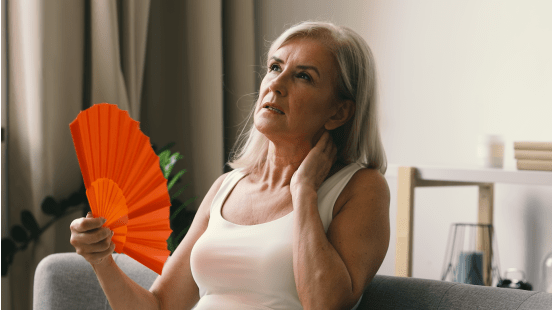Australian women suffering from the debilitating symptoms of menopause will have access to the first new kind of menopausal hormone therapy to be subsidised by the Federal Government in more than two decades.
From 1 March, three menopausal hormone therapies – Estrogel® Pro (estradiol / progesterone), Estrogel® (estradiol) and Prometrium® (progesterone) – will become available through the Pharmaceutical Benefits Scheme (PBS) to help alleviate menopausal symptoms women who have reached menopause.
Currently, more than 100,000 Australian women are paying privately for these medicines. Without the subsidy, women could pay around $650 per year for modern menopause therapy, depending on individual pharmacy pricing. Under the PBS, eligible patients will pay just $7.70 (pension and concession card holders) or up to $31.60 (general patients) each month for Estrogel Pro, Estrogel or Prometrium.
The new subsidies follow:
– The 2024 Parliamentary Inquiry into Menopause and Perimenopause recommendation that newer forms of menopause therapies be subsidised through the PBS to bolster supply and “ensure appropriate access and lowered costs for all women who need it”;
– Therapeutic Goods Administration advises that supply shortages of currently PBS-listed menopausal treatment options will persist throughout 2025 and that prescribing those therapies for new patients should be limited to “help preserve available supply for existing patients”.
The funding move is being welcomed by women’s health experts, including Dr Sonia Davison, Endocrinology Lead at the Jeans Hailes Clinic, who said: “This is wonderful news that will make a meaningful difference to the lives of countless Australian women”.
“This decision acknowledges the impact of menopause on women’s lives and ensures they have access to modern treatment without a sizeable cost burden,” she said.
“For far too long, menopausal women have had their experiences dismissed and faced barriers to accessing affordable treatment options.”
One in four women experience severe or prolonged menopausal symptoms that affect their quality of life and may require treatment.
“While menopause is a normal and natural part of ageing, it’s important that women realise that the symptoms affecting their quality of life are very treatable,” Dr Davison said. “They should not suffer in silence”.
“Too often, menopause is dismissed as simply hot flushes or moodiness. The reality is that, for some women, the dramatic drop in hormone levels can cause a raft of symptoms that may last for years.”
Menopause describes the natural stage of a woman’s life when her menstrual period permanently stops. It is caused by a drop in reproductive hormones – especially estrogen – that can begin many years earlier, during a phase known as perimenopause.
Menopause hormone therapies such as Estrogel Pro, Estrogel and Prometrium help to replace the hormones lost by the body, to bring them back up to premenopausal levels, thereby reducing symptoms that may interfere with daily life.
Menopause, which typically sets in around the age of 51, can lead to hot flushes, night sweats, sleep deprivation, muscle and joint pain, mood changes and increased irritability, brain fog, and decreased concentration and executive function. Symptoms typically last for around seven years.
“There’s a reason that menopause is known as ‘the change of life’. It really can be life-altering and can impact almost every aspect of a woman’s life – from her sense of self, physical and mental wellbeing, to relationships and even her ability to work,” said Dr Davison.
Research shows that more than two-thirds (69 per cent) of Australian women aged 45-64 who had reached menopause have been troubled by menopausal symptoms. For more than 40 per cent of these women, the symptoms made daily activities difficult.
“Sadly, for some women, the physical and psychological symptoms of menopause can be debilitating and completely overwhelming,” said Dr Davison.
“In 2025, menopause should not be overlooked or taboo. We must all understand that while menopause is normal, the discomfort, poor health and reduced quality of life often caused by menopause are not unavoidable consequences of ageing.”
Robert is the founder of AustralianSenior.com.
He studies Journalism and Communications at USC and studied TV Presentation at NIDA. He is passionate about advocating for seniors and presenting non-biased, fact-based news to enable those over 50 to thrive in an increasingly complicated digital world. He covers all areas of life and style, from pop culture to the economy, travel, and events with a passion for supporting rural and regional destinations and opportunities. If it's worth reading, it's worth writing about.
He loves to travel the globe and is a recently diagnosed, late-in-life Type One Diabetic.


